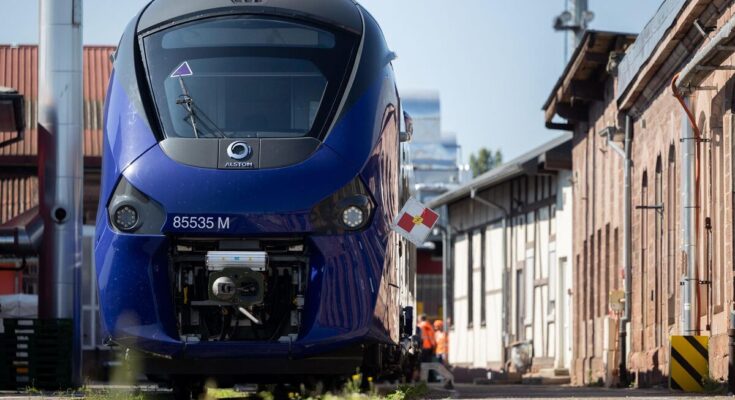There are 30 units, new… Régiolis Trains was acquired by the Grand-Est region for almost 400 million euros at the beginning of the year. Cross-border trains have the peculiarity that they can only operate in France! “At the moment, our trains have not received approval to operate on the German side,” explained Thibaud Philipps, regional vice president in charge of transport.
This series of trains was created as part of the Treaty of Aix-la-Chapelle which regulated the development of a railway line between France and Germany.
The cause of this slowdown: the evolution of braking standards across the Rhine since the creation of the railway. “After various accidents, Germany has changed the regulations governing emergency braking. Our French trains use electromagnetic bearings, which are not approved for emergency braking on German rail,” complains Thibaud Philipps.
An incident that is all the more regrettable because the Régiolis train set was designed by French and German engineers. Therefore, for now the trains are used to strengthen the offer on the French regional network.
Penalty for SNCF
“It’s still quite funny seeing French and German flags on the carriages, but knowing that they can’t run in Germany. Even more so when we know their exorbitant prices! » laughs Jeff, a daily user of TER Mulhouse-Strasbourg. Laurence, who is used to Alsatian regional trains, is delighted “to be able to take advantage of the new Régiolis trains while waiting for them to be ordered for the cross-border line. Every day, we travel in dilapidated trains, so it’s nice to enjoy an efficient and friendly train.”
Mathias did not share the same opinion. Working at a bank in Müllheim, he couldn’t wait for the opening of cross-border links between Mulhouse and the German city. “At the moment, I have to take a bus that takes 40 minutes between Mulhouse and my office if the bus runs well. I accepted a position in Müllheim at the start of the year because SNCF promised a cross-border connection between the two cities in just 20 minutes,” says the 27-year-old.
This French-German connection will indeed accommodate Régiolis trains such as the Strasbourg-Offenburg line. “Our trains do not need to return to the factory but we have to restart the approval process. We hope to get approval from the German side early next year with the target of being able to run these trains in April,” the elected official hoped. Meanwhile, the Grand-Est region is already planning to charge “a fine of 20 million euros to SNCF in connection with this delay in switching on”.



